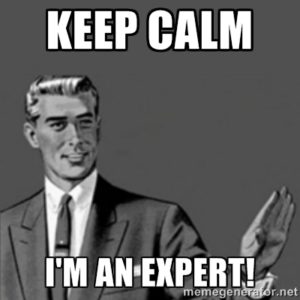As I said in the last post, the format at my writing group is REALLY simple. I don’t do any formal teaching or give instructions or exercises, we just let the kids write whatever they like and they respond well to that, producing fantastic writing that’s really personal and important to them.
But there are ways you can inspire, help and teach them without putting them under pressure or making them feel like they’re doing homework and I’ll be sharing those as we go along.
First up: Top Tips
Something that always inspires me to write, is reading interviews with other writers. Mostly this is to reassure myself that they ALL find it difficult, but the best bit is when they give you their ‘Top Ten Tips’ for writing. Every writer gets asked for these apparently, there are dozens of them online.
When I first began working with my young writers, I started choosing an author each week and printing out their Top Ten Tips to give to the kids. Sometimes they’d heard of the writer, sometimes they hadn’t, it didn’t matter. They always looked forward to the tips because they’re quick, useful, often funny, and they come from REAL writers, which, I’m sorry, is always going to be more impressive than REAL librarians and REAL teachers (totes unfair, I know).

But the big benefit of these is seeing that every writer does it differently. It’s great when you read a tip and think, ‘Oh! I do that too!’ because you feel like you must be getting it right, but it’s also great to see the massive variation in writing methods because it drives home the point that actually, you can’t possibly be getting it wrong.
Sometimes these tips generate some discussion, sometimes not, that’s OK. I think if you demand a discussion then you kinda turn it into ‘an activity’, like they’re being tested on their response. But often they’ll respond naturally to something that catches their eye and you can use that to talk to them about it. Or you can say which ‘Tip’ you found interesting and they might respond to that.
Sometimes advice will speak to them immediately, sometimes it’ll sink in slowly, sometimes it’ll sit in the back of their mind for years before it clicks, sometimes it’ll consciously or unconsciously change they way they write, sometimes they’re not be the least bit interested in how anyone else does it because they write for themselves alone, and in a way that’s the purest form of creativity.

It’s just a potential discussion starter that might get them thinking about their technique but I wouldn’t labour it. Just give them the tips as a point of interest and then let them get on with writing whatever they like.
These Top Ten Tips are all available online if you Google ‘writing tips’, but you’re very busy so I’ve compiled them for you into one big document so if you’d like to use them, you can just choose a writer each week and print off their tips for your young writers. There are 34 writers here, that’s roughly one for every week of the school year!
And they range from the inspirational:
“Be without fear.” AL Kennedy
to the minutely technical:
“Never use the word “then” as a conjunction – we have “and” for this purpose.” Jonathan Franzen
from the cynical:
“The first 12 years are the worst.” Anne Enright
to the aspirational:
“The prerequisite for me is to keep my well of ideas full. This means living as full and varied a life as possible, to have my antennae out all the time.” Michael Morpurgo
and the practical:
“Do back exercises. Pain is distracting.” Margaret Atwood
to the hilarious:
“If you have to read, to cheer yourself up read biographies of writers who went insane.” Colm Toibin.
There’s something for everyone. Other places to get writing advice include YouTube which has loads of short (and longer) interviews with writers. You’ll only get away with longer ones if they’re funny but I recommend these ones:
https://www.youtube.com/watch?v=xPN7vDu9Rsk Neil Gaiman being very funny on where he gets his ideas, daydreaming and what happens if a werewolf bites a goldfish (12mins)
https://www.youtube.com/watch?v=lwhOd65gGoY Stephen King on his writing process (7mins) “Plot is the last resort of bad writers”
https://www.youtube.com/watch?v=R_HXvxgCkxw JK Rowling’s 5 Top Tips (4mins)
And if you run out of mega famous writers, here are mine!
Kelly McCaughrain’s Top Ten Writing Tips
- Your favourite book by your favourite author started out as a rubbish first draft. Aren’t you glad they didn’t give up on it?
- People only think their work is bad when they’re talented enough to spot the bad bits.
- Keep a diary. It’s the most important and original story you will ever write.
- Write a better world than the one you live in. This is how better worlds come to be.
- Be kind to your fellow writers. These people are your tribe.
- Experiment. What’s the worst that could happen?
- The characters we love most are always the outcasts.
- Write the story you’d most like to read.
- There’s no such thing as weird. Every character makes sense if you can see inside their heads.
- Be brave, not perfect.
And here’s the link to download the PDF: The Blank Page Top Tips
I hope these are useful to you!
Kelly
x
Leave a Reply